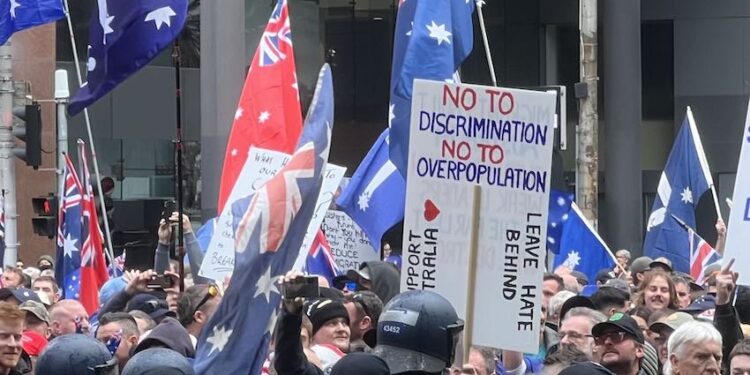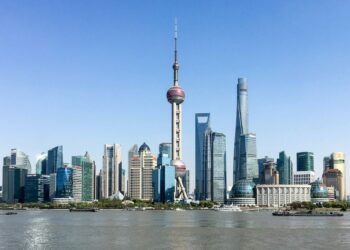On Sunday, “March for Australia” rallies filled streets from Melbourne to Brisbane with a single demand: stop mass immigration. Cameras also captured hateful insignia and chants beside placards about rent and wages. Police used pepper spray in Melbourne and made arrests in several cities. That signal travelled far: people like me were told our presence is a problem. For Indian, Pakistani, Bangladeshi, Sri Lankan and Nepali communities, pressure has been rising for months. Talking points have framed South Asians as a cultural threat. You can feel the temperature lift at community meetings, on trams, at work. That permission structure spills into daily life long after the march is done, and banners are packed away.
I am a Pakistani Australian. I came to Australia as a migrant and worked hard to earn my stripes at university, where I sharpened both my academic and leadership skills. From there I pushed forward professionally, building a career that has taken me into health, governance, and media. Today I sit on national boards, advise major institutions, and represent multicultural communities at the highest levels. The march made clear how quickly belonging can be shaken, yet it also sharpened my resolve. This week the changes were small and familiar. A longer stare. A muttered comment. A friend who chooses to skip the night shift. The chill remains.
Australia faces genuine pressures: rents continue to climb, housing supply has fallen behind, and wages lag behind rising costs. These are structural issues that require practical responses—building homes at pace, investing in transport that matches growth, and creating skills pathways that lead to secure jobs. When frustration with these challenges is projected onto the bodies and accents of newcomers, difference becomes a fault line and real solutions move further out of reach. Net overseas migration surged after the border reopening, but by late 2024 and into 2025 it had already begun to ease. The permanent migration program operates within a clear cap and carries a strong skilled share. These are settings that deserve serious debate, but scapegoating South Asians will not resolve them. At the same time, belonging has weakened. The Scanlon Foundation’s Mapping Social Cohesion 2024 shows civic life holding together while attachment softens. For many of us that feels true: daily routines continue, but the air feels thinner. South Asians in particular are caught in this tension. Our communities are visible in small businesses, hospitals, universities and local clubs, yet often reduced to caricature.
A wider absence of curiosity—the simple act of knowing your neighbour—creates space for myths and half-truths. In that silence, misunderstandings multiply and harden into suspicion. The harms are measurable. Reports to the Islamophobia Register more than doubled between January 2023 and November 2024. Women and girls carried the overwhelming share of abuse, including every recorded spitting incident. These are contained in a pattern that expands when rhetoric legitimises scapegoats and when neighbours stop seeing one another as people first. And yet the national story still gives reason for confidence. By June 2024, almost one in three people in Australia had been born overseas. England, India, China and New Zealand lead the list, and the Indian born community has recorded the largest growth over the past decade. South Asian Australians are young, skilled and deeply invested in this country’s success. When recognised fully, our contributions strengthen the common good.

What’s Next? The marches have left us with a choice. Either we allow anger to settle into suspicion, or we demand action that restores trust. The responsibility sits with government and with each of us. At the same time, leaders must stop talking about us as numbers and start showing us respect as people. South Asians are already keeping hospitals open, building businesses, filling classrooms, and serving on boards. The real work of government is to match that contribution with fairness: invest in housing, defend communities from hate, and recognise that belonging is built in the same way as infrastructure — by showing up and delivering. But cohesion cannot be built by governments alone. Communities carry responsibility too. Belonging grows through policy, but it is sustained through practice: opening doors, sharing meals, learning a neighbour’s story. These gestures weaken suspicion and strengthen trust. Australia moves forward when courage outruns fear.
South Asian Australians refuse to shrink. We will build, lead and keep the lights on in the rooms where trust is made. But social cohesion cannot be outsourced. It begins on a front porch, in a workplace lunchroom, on a suburban train. Know your neighbour, and let your neighbour know you. That is how we strengthen the fabric that Sunday’s marches tried to tear.











